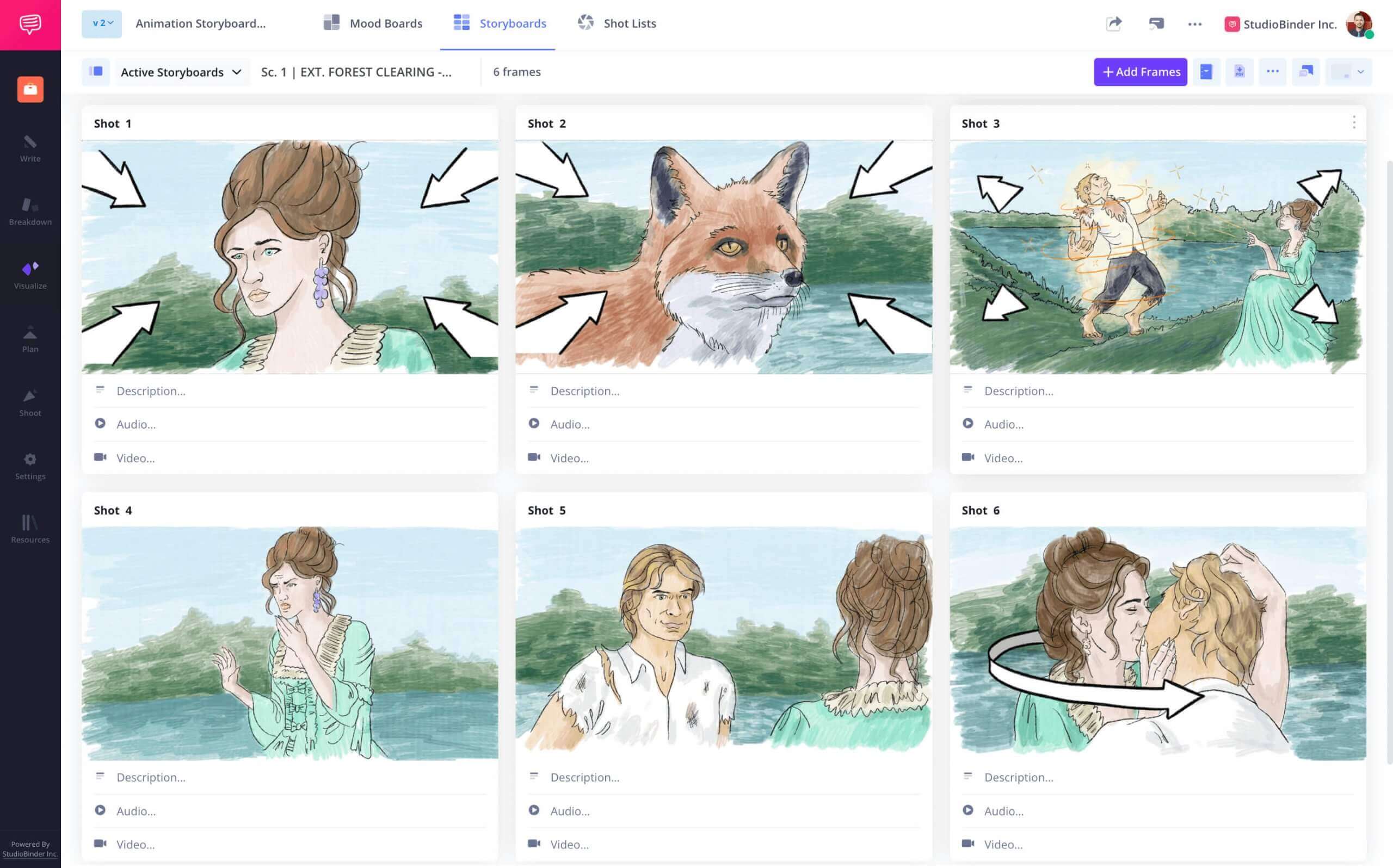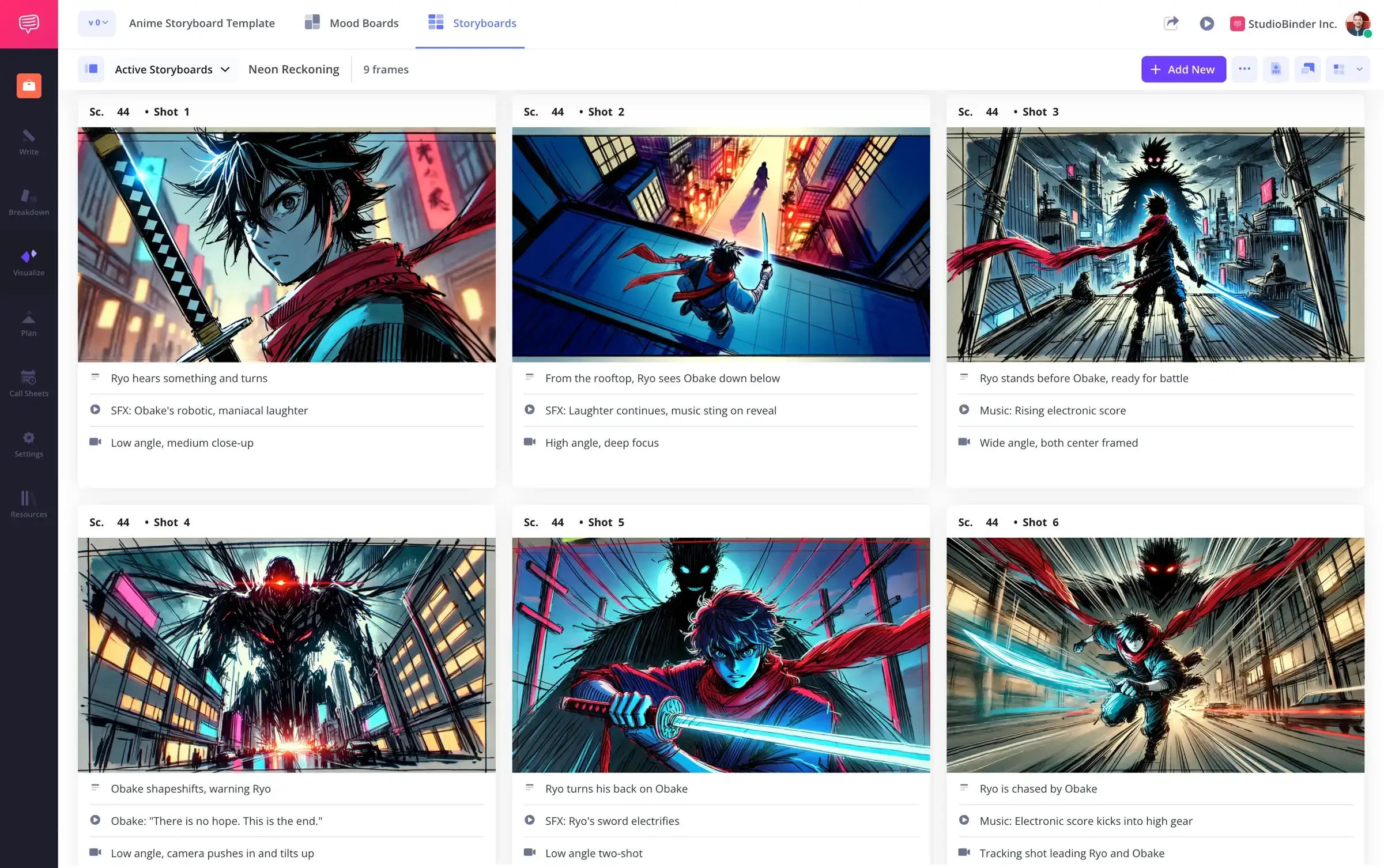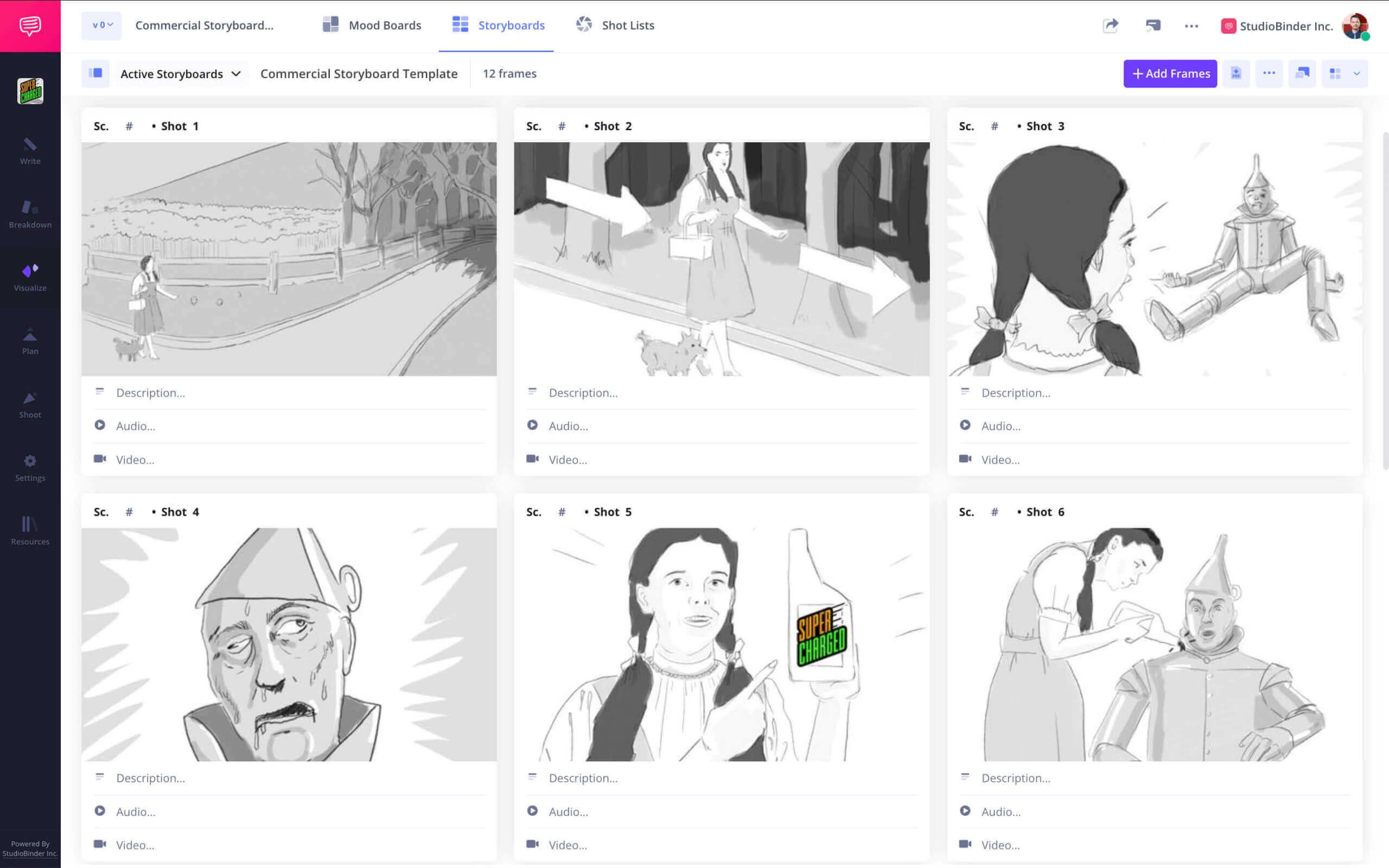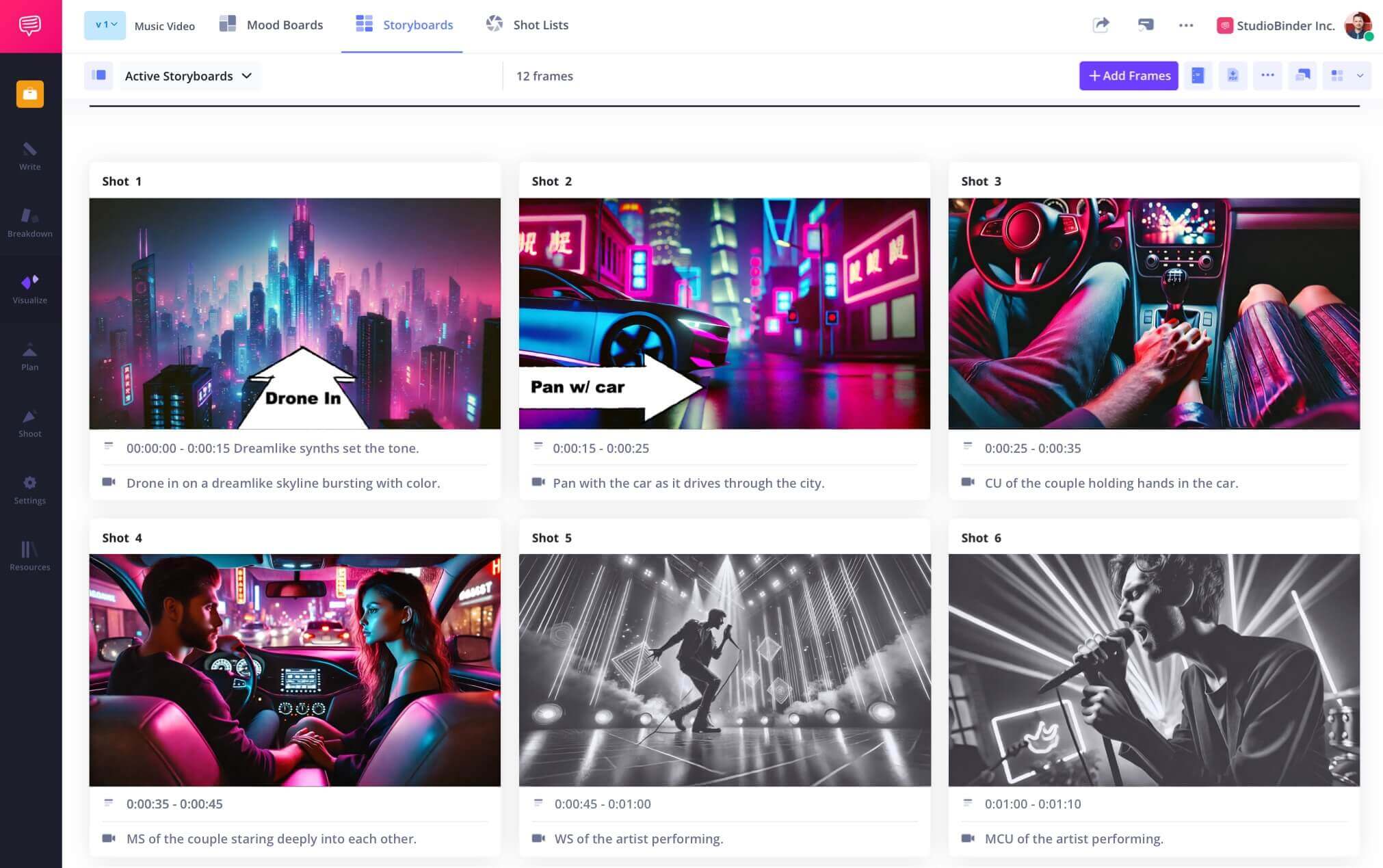Website Storyboard Maker
Turn ideas into visuals
Create stunning visuals quickly with our website storyboard maker, a browser-based tool that lets you design, edit, and share storyboards without installing software.
Storyboard Maker
Plan pre-production from start to finish
Our storyboard maker website combines storyboarding with production tools, giving you everything from scene breakdowns to call sheets in one platform. Perfect for films, commercials, and animation projects.
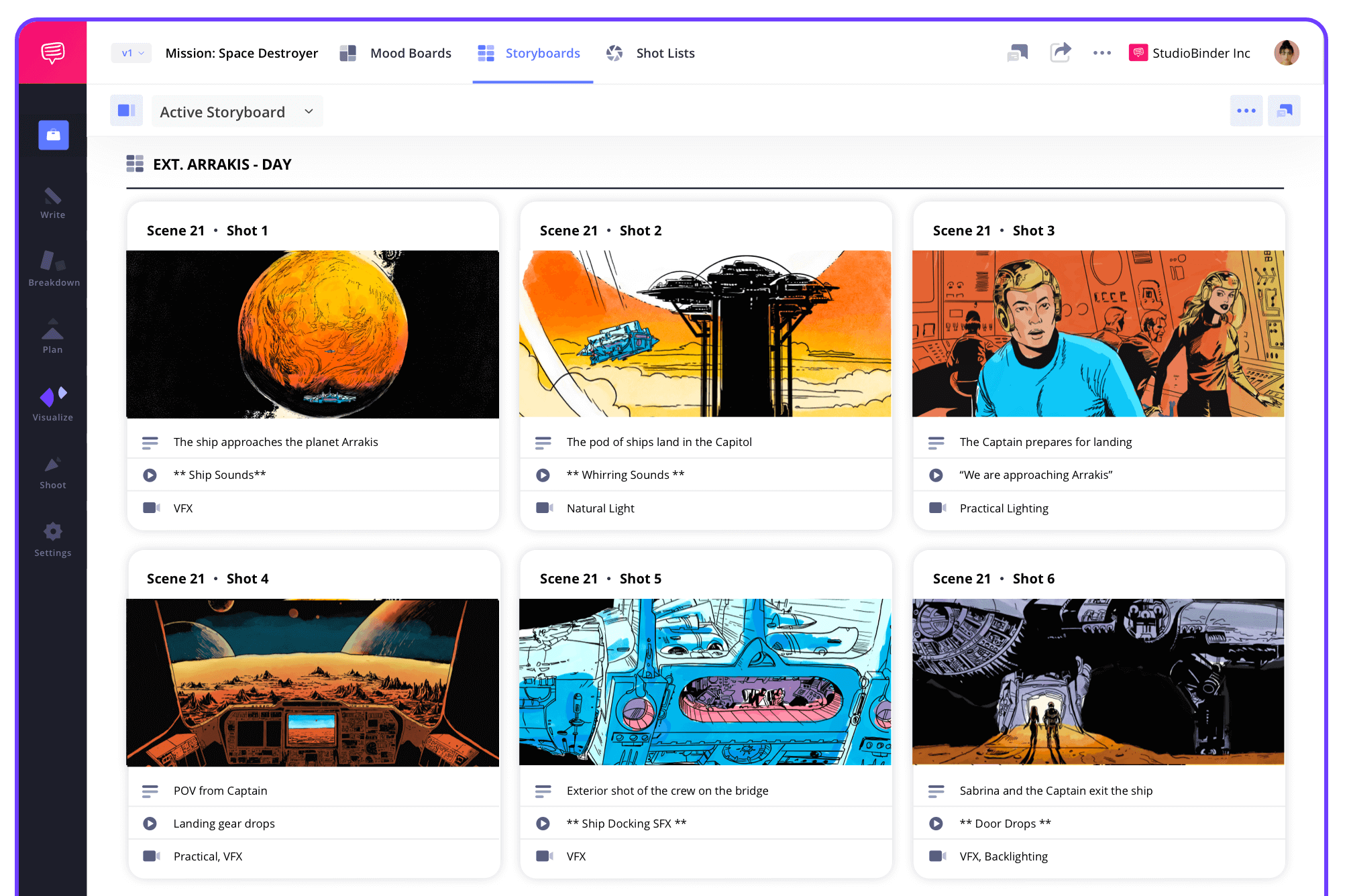
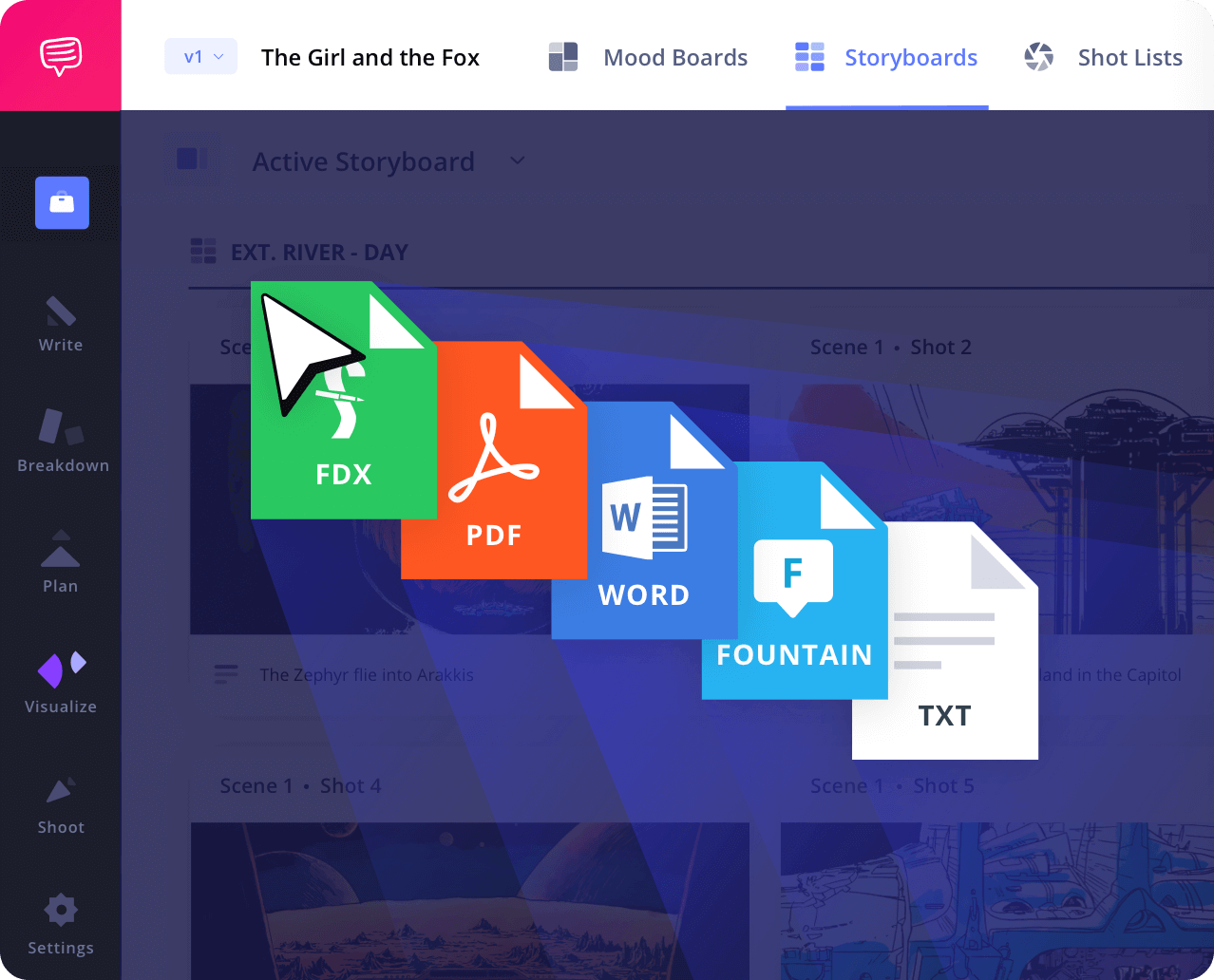
Screenplay to Storyboards
Import your script to make storyboards
Upload a script or write one directly in our storyboard creator online. The software automatically syncs scenes and generates storyboard panels, ready for you to customize with visuals and notes.
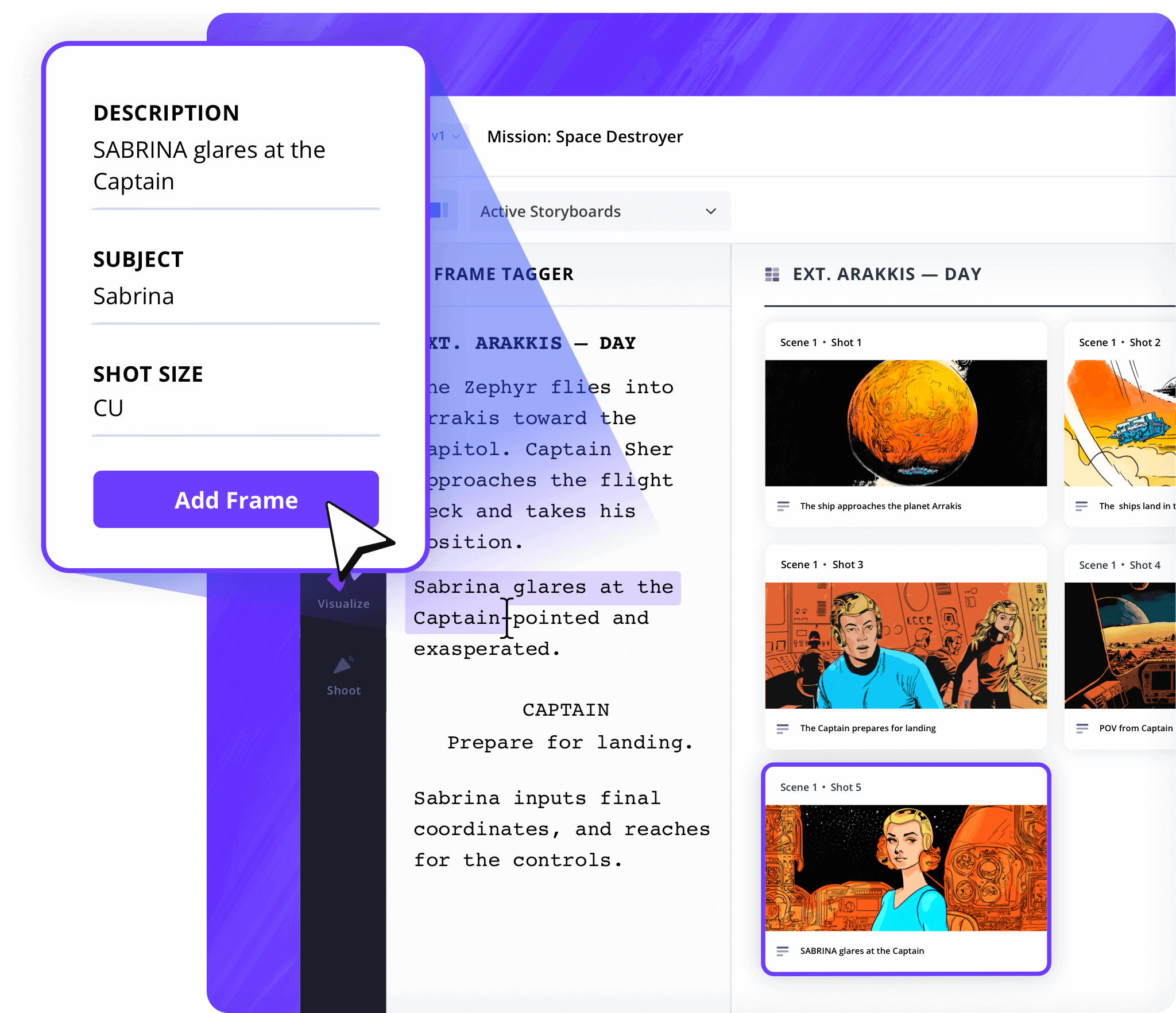
Shot Tagger
Tag scene elements to create storyboards
Highlight key moments from your script and instantly turn them into storyboard panels. This feature connects the words to the exact imagery needed for your production.

Shot Specs
Select the perfect layout
Choose from preset shot specs that include camera angles, framing guides, and aspect ratios to speed up your process.
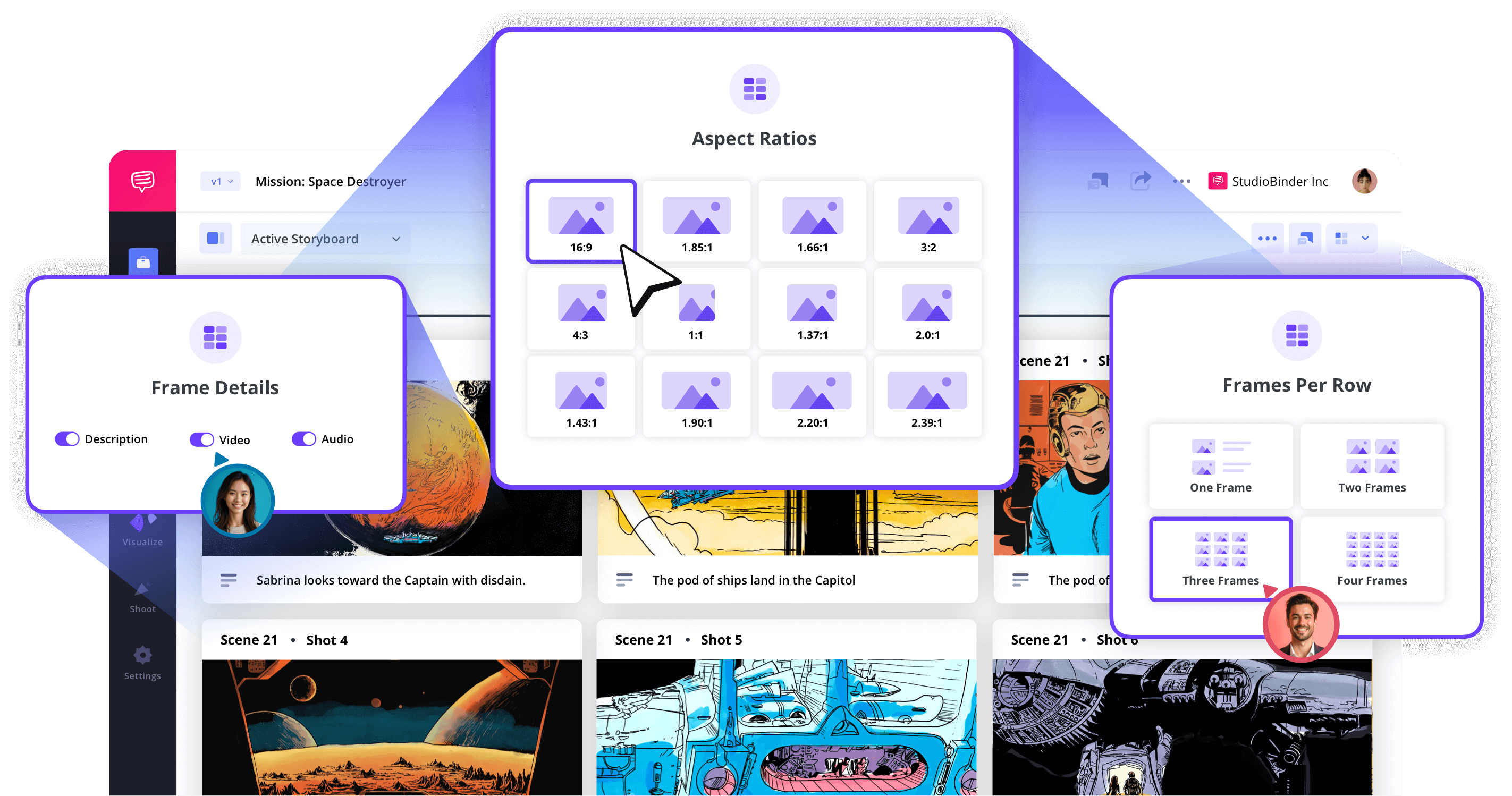
Image Editor
Edit storyboard images online
Scan sketches or upload photos, then adjust them with filters, color correction, text overlays, and storyboard arrows. The built-in image editor keeps your workflow fast and flexible.
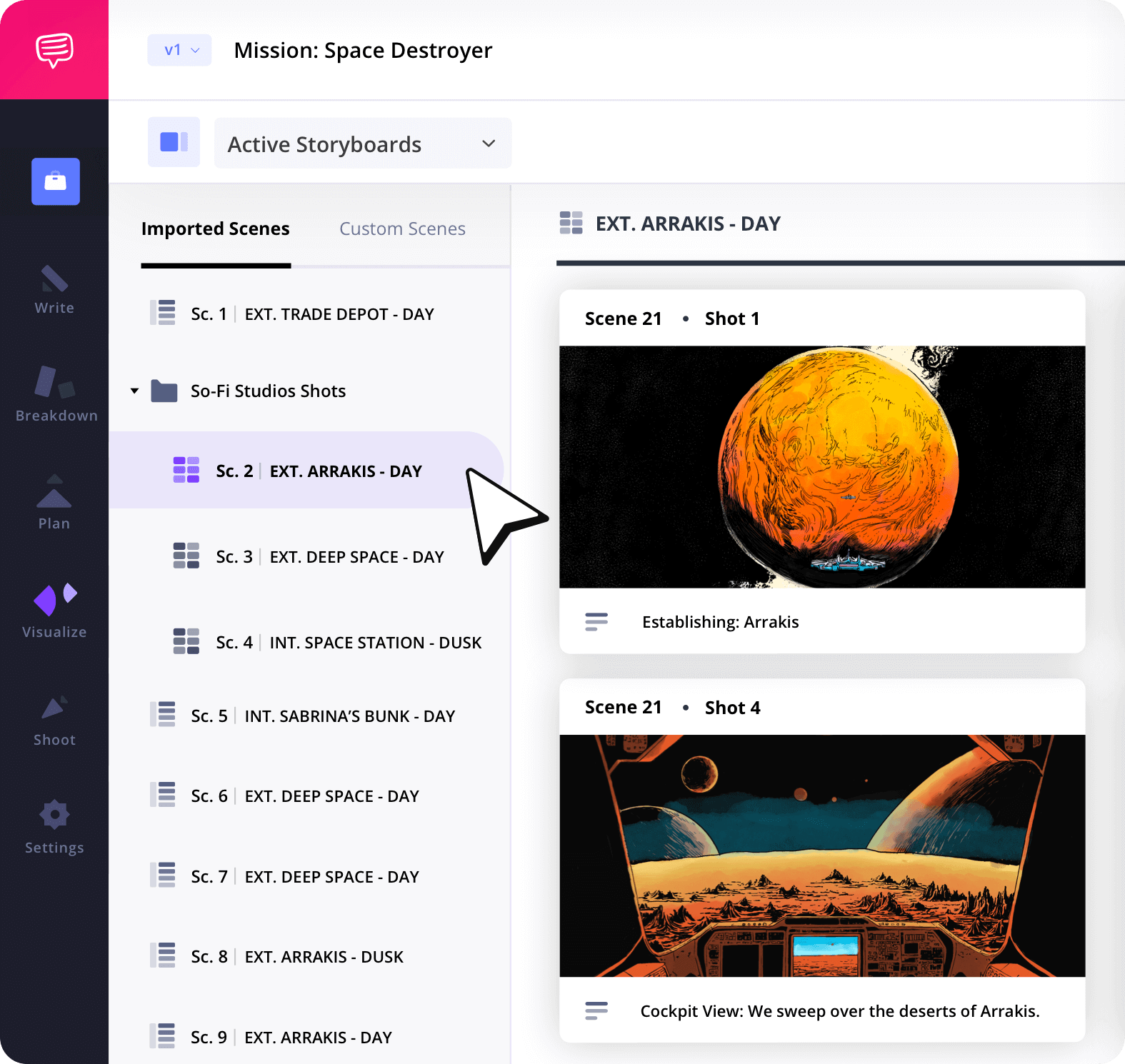
Storyboard Groups
Organize your storyboards easily
Arrange panels into groups by location, shoot date, or production status. Keep your storyboard organized so your team can find the right scenes instantly.
Collaborate
Work with your team online
Invite team members to your storyboard project. They can comment, upload images, and suggest edits directly in the project, perfect for distributed film crews or creative teams.
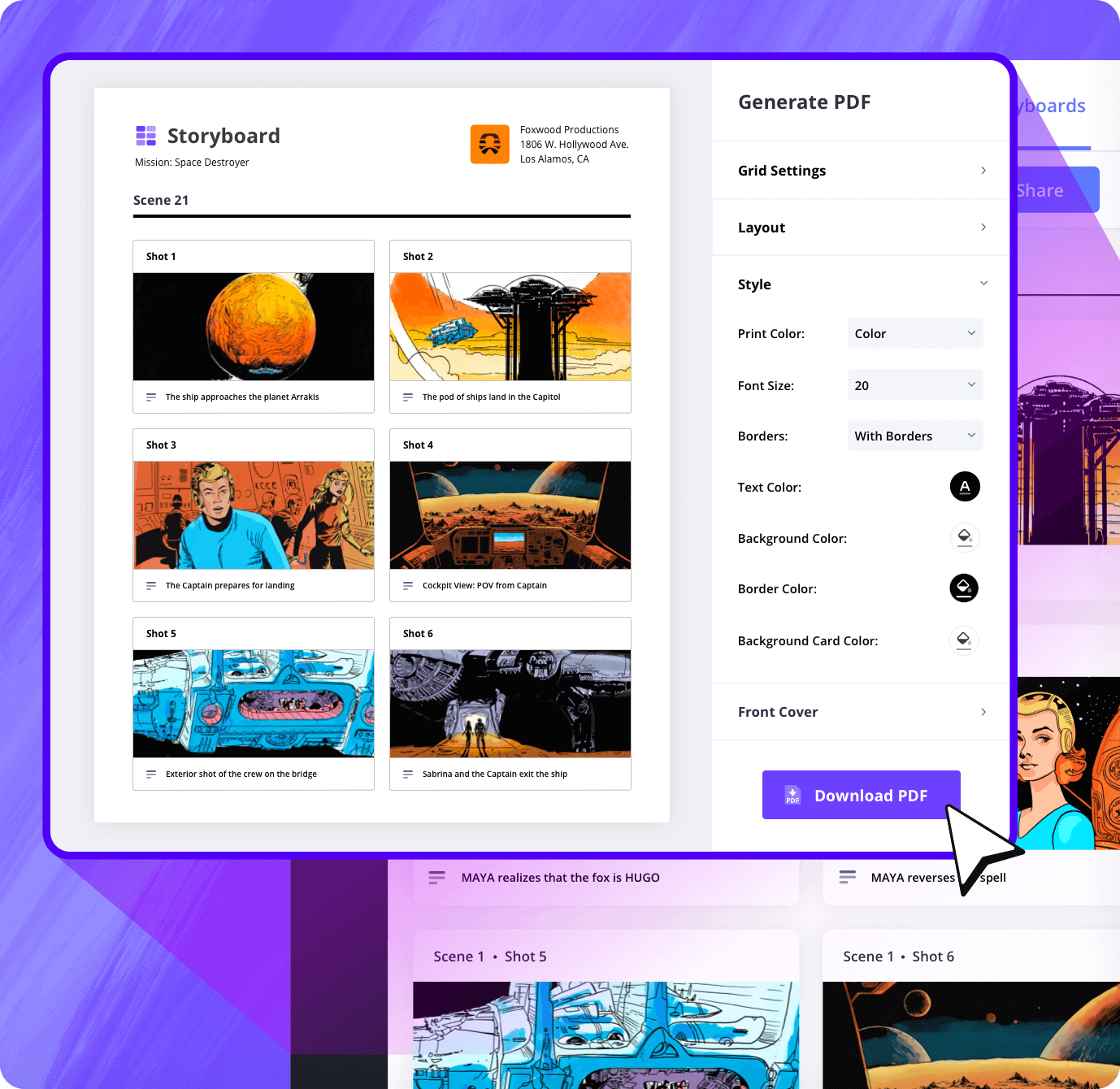
Customization
Design professional storyboard PDFs
Export high-quality PDFs from your storyboard website maker with full control over layouts, branding, colors, watermarks, and cover pages.
Sharing
Create private view-only links
Send view-only links to clients or invite team members to collaborate online. No file downloads or email attachments needed.
Explore Features
More storyboard features
Aspect Ratios
Choose an aspect ratio that best suits your project.
Column Layouts
Adjust how many columns your storyboard will have.
Image Library
Reuse storyboard panels from previous projects.
Shot Numbering
Choose between digits, letters, or a custom shot numbering.
Storyboard Archive
Archive old storyboards to keep an accessible history.
Color-Code Shots
Label or call out specialty shots with colors.

What are the 8 steps in storyboarding?
Open StudioBinder on your browser.
Click on the Storyboards tab on the project homepage.
Choose to either import a script or create a storyboard manually.
Name the storyboard, set the aspect ratio, and select the number of frames.
Add an image to each frame from the Media Library or upload new images.
Edit your images with a suite of tools, including filters, text, and arrows.
Enter details, including the scene number, description, and notes.
Create a custom PDF, send a view-only link, or invite collaborators for feedback.
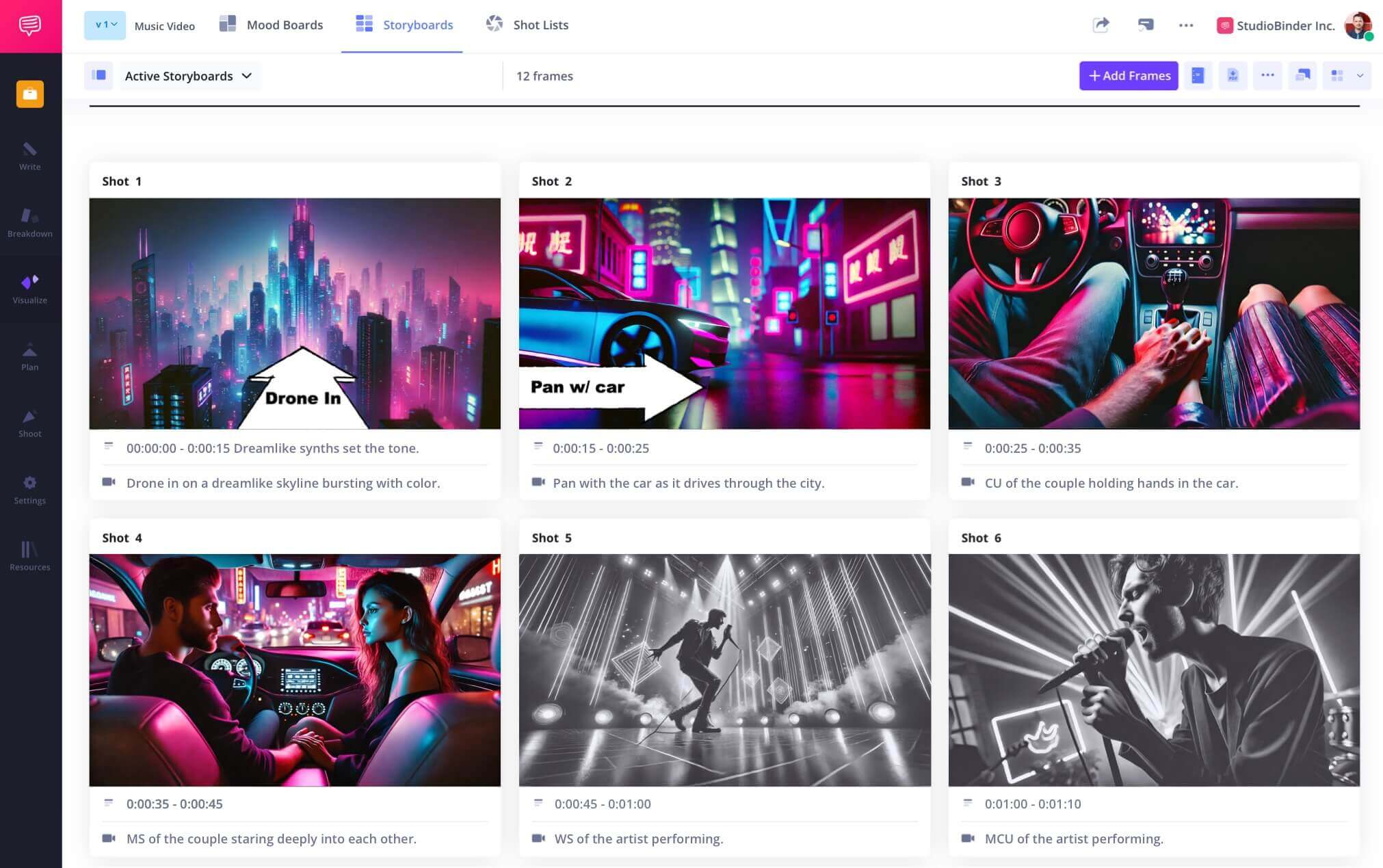
Frequently Asked Questions
Your questions, answered
There are two primary methods for creating a storyboard: digitally or manually. Some people have strong preferences for their chosen method, but at the end of the day, the finished product should be useful to you and your team. Here is a quick set of instructions for making a storyboard that works for either option.
- Start with a blank template
- Add your images and arrange them in story order
- Insert notes and descriptions for each shot
- Annotate with text and arrows for an extra layer of clarity
On average, Storyboard Artists in the US make approximately $90,000/year, depending on the scope of the projects, their experience level, etc.
Making a storyboard for animation follows the same general process as any other type of storyboard. However, the key difference is that, instead of simply serving as a reference for the final shot, animation storyboards are much closer to what the actual finished shots will look like.
This means that the characters' postures and body language will be more refined, the overall composition will be established, and the continuity from frame to frame will be more consistent, giving animators a clearer idea of what needs to happen in each shot. Because of this last point, animation storyboards tend to have many more frames than a live-action storyboard.
Compared to animation, making a storyboard for film is simplified. The sketches can be rougher, the compositions looser, and there might only be a single storyboard frame for a shot instead of several.
In Microsoft Word, you can create your own storyboard template. It requires a few steps, but you also have the freedom to create a template to your exact specifications. First, divide a blank document into columns (as many as you want, but 3 or 4 seems to be the average). Then insert a 1x1 table as your storyboard frame and add some lines underneath for description and notes. Copy and paste the box and lines as many times as you want in the different columns. And that's it! Your very own storyboard template in Microsoft Word.
The amount of time it takes to make a storyboard is completely dependent on you, how detailed you want your storyboards to be, your illustration skill level, etc. All of these factors are dependent on you and the specific project.
Making a storyboard for a music video has a lot of overlap with making any type of storyboard. You still want to construct specific shots and compositions as you would in film or animation. Where the music video storyboard process differs is in the type of music video. Some are more narrative, some are pure performance, and some are in between. So, deciding what to storyboard would range from the more traditional (narrative) to the more abstract (performance).
Most people think of documentary filmmaking as more spontaneous, but there is a lot of planning to do before shooting starts, including storyboarding. The most obvious storyboarded scenes would be the talking head interviews. But you might also know the subject and the location and the basic story you're trying to tell, so you can plan out your shots and compositions with a storyboard.
Storyboarding a commercial isn't really that different from storyboarding a narrative project. Each shot is represented in a frame, often telling some sort of narrative, but also featuring the product. Often, the production company will send these storyboards to the client for approval in advance.
Customers
Trusted by the Best
Modernizing production workflows at renowned studios worldwide.
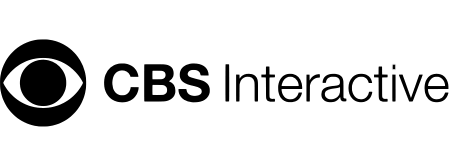



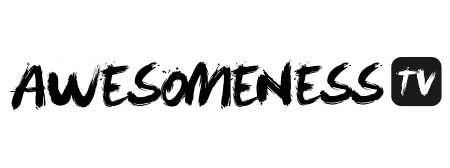





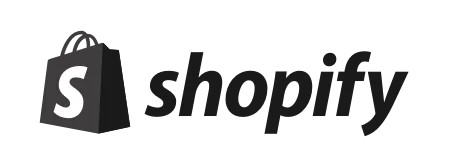

Today’s productions use StudioBinder to streamline their process, and collaborate on better content together.
"I can be a part of the conversation and see when someone finishes a task."
Watch Testimonial ➜
"StudioBinder makes pre-production that much quicker for out team."
Watch Testimonial ➜
"Call sheet confirmations have instantly made our life that much easier."
Watch Testimonial ➜
